Lemeilleurthedechine
Pu'erh cooked tea red stamp cake – 357 g – 2006
Pu'erh cooked tea red stamp cake – 357 g – 2006
Couldn't load pickup availability
Origin: Menghai, Yunnan, China
Specificity: Cooked Pu'erh tea cake, 2006 vintage
Packaging: 357 grams, pressed cake in its original packaging
Bouquet: Intense aromas of damp undergrowth, peat, and earth enriched by time, with mineral notes reminiscent of flint. Round and supple on the palate, it is fluid and very pleasant to taste.
Properties: Traditionally appreciated for its warmth, this Pu'erh tea is often consumed after meals to aid digestion. It fits perfectly into a wellness routine focused on a balanced diet and daily vitality.
Dosage: 8 to 12 grams depending on the desired intensity and the number of people.
Preparation: Start by “waking up” the tea with boiling water (100°C) and quickly rinse it twice (2 to 3 seconds).
Then infuse with water at 90°C:
-
1st infusion: 6 seconds
-
2nd: 9 seconds
-
Then add 6 seconds to each new infusion
The water must pass through the tea without steeping it for too long. This allows the rich, dark notes to gradually soften, revealing the subtleties of the vintage.
Tone: The liqueur offers a luminous ochre color during the first infusions, then intensifies towards deep, earthy ruby hues, marking the evolution of the tea over the tastings.
Taste: Full-bodied, deep, and bold. This tea is perfect for both your day and evening: both stimulating and soothing. Its monolithic character is balanced by a warm, rounded flavor that lingers on the palate.
Texture: Rich, aromatic, both tannic and supple. It offers a full and satisfying mouthfeel.
Storage: Store in its original packaging. Avoid airtight containers. Store in an environment at room temperature, without strong odors (no incense or tobacco). Ideally, a well-ventilated place, such as a library, is ideal.
Pu'erh teas are teas for aging: they gain complexity over time and have no expiration date.
Share
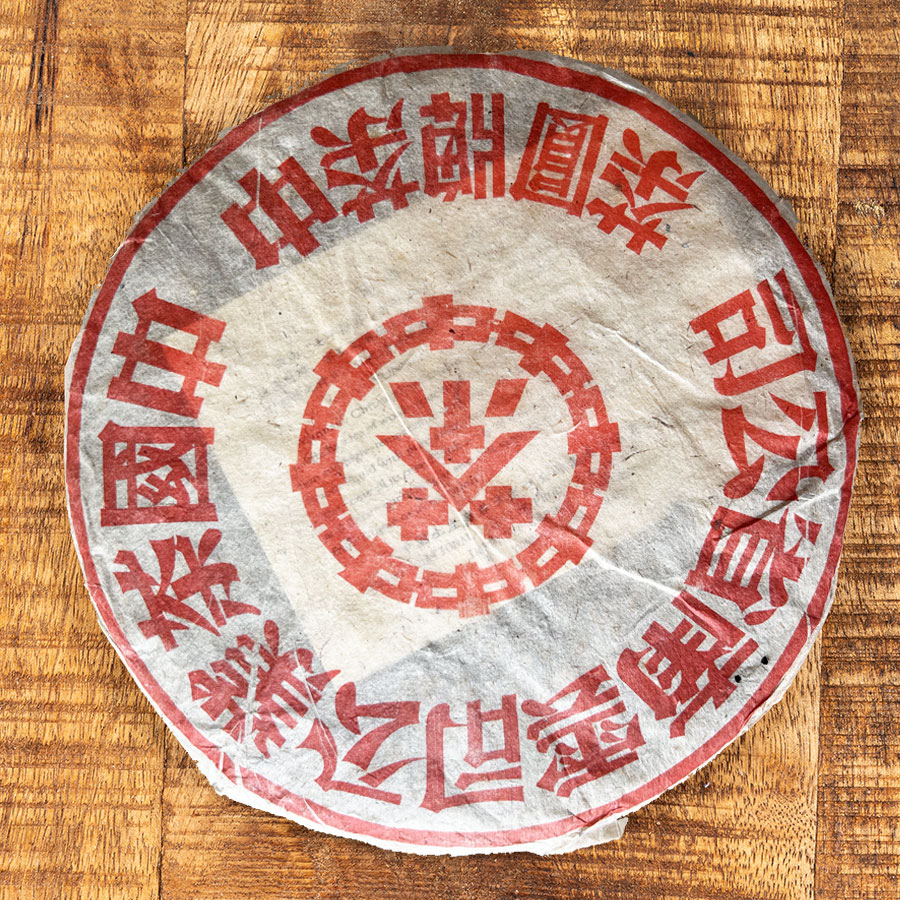
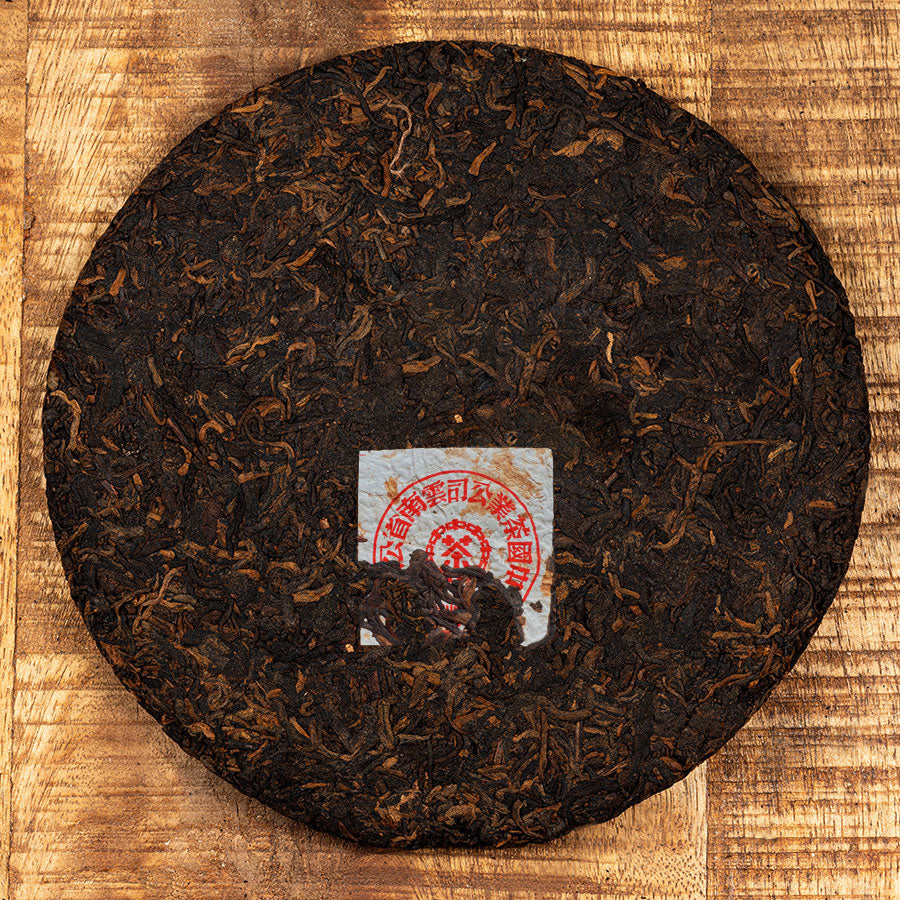
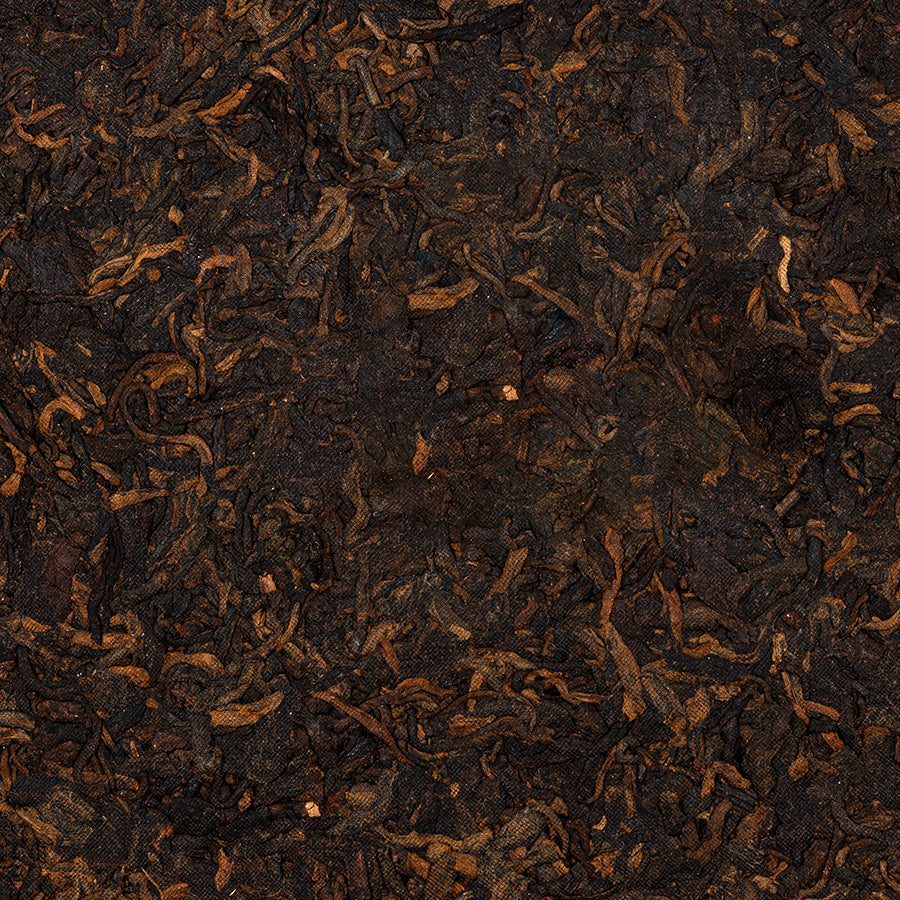
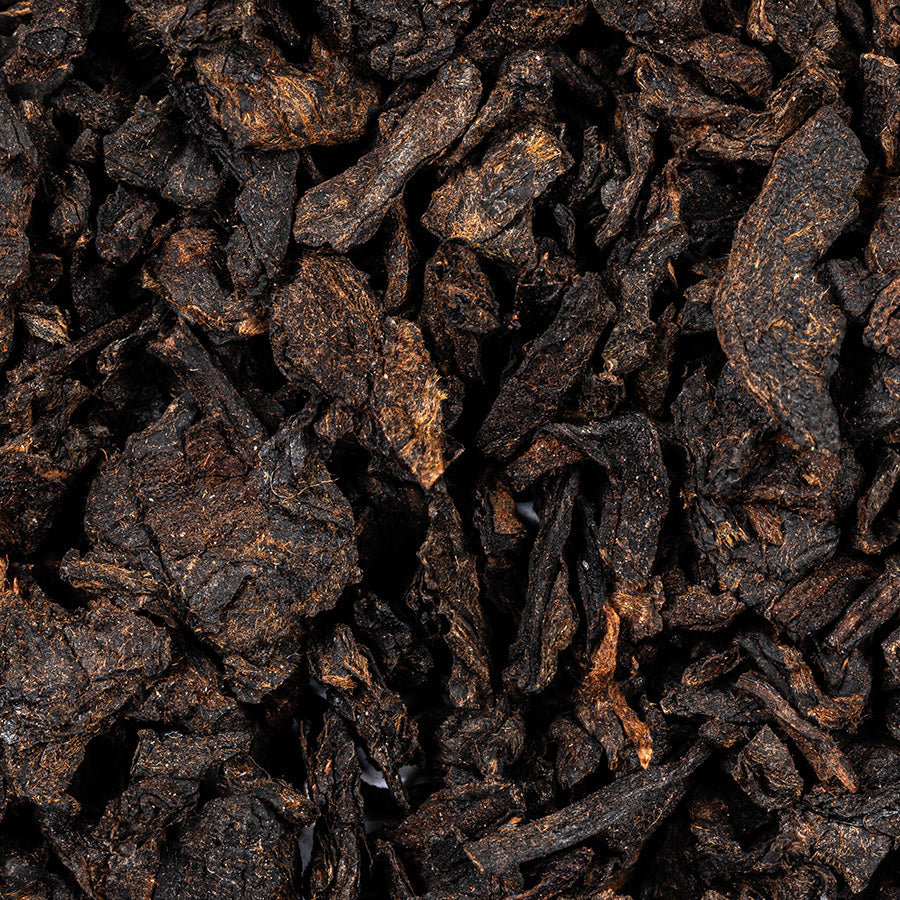
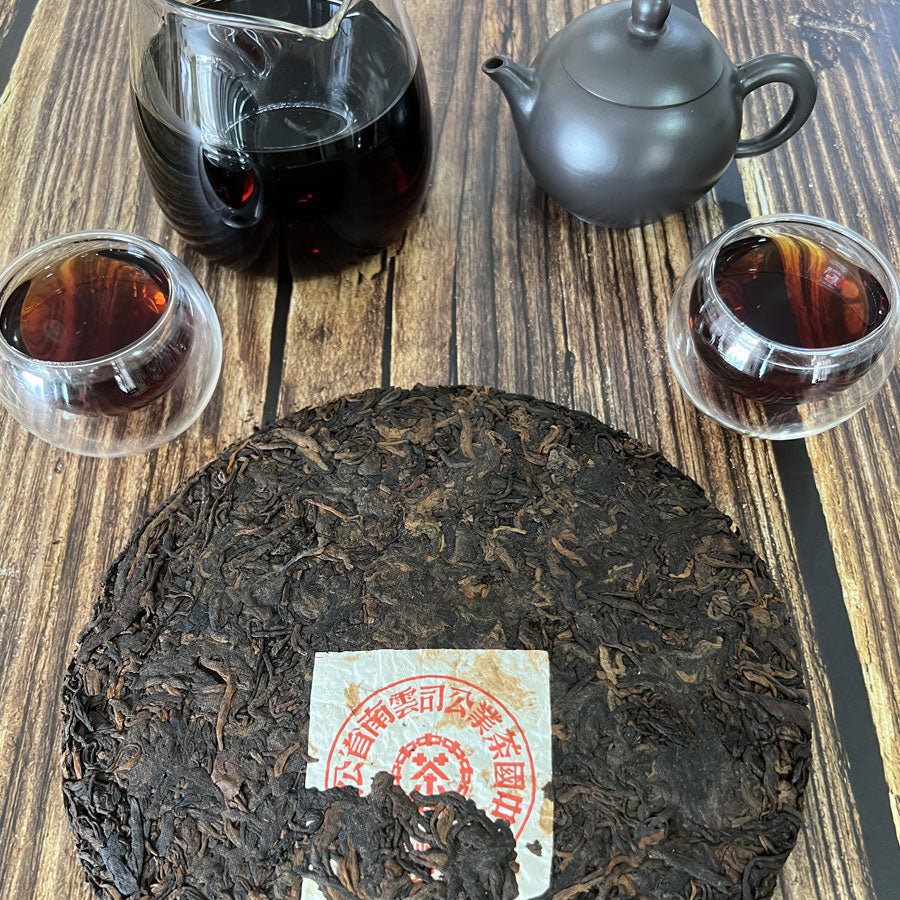
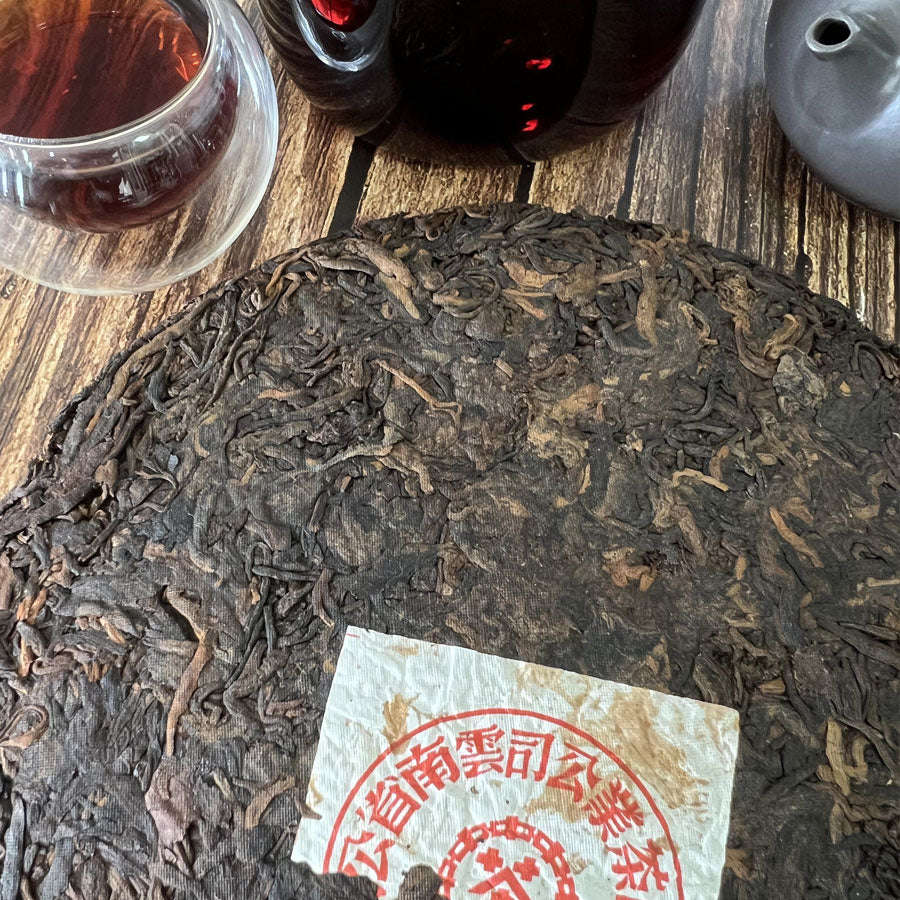
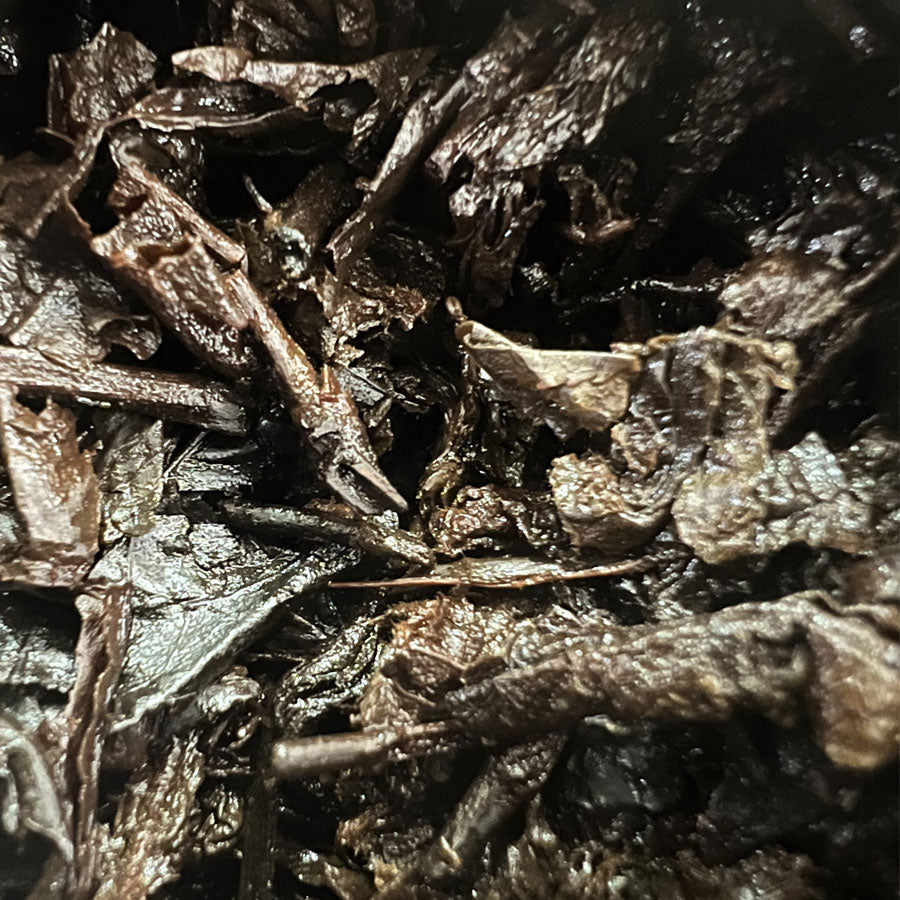
Let customers speak for us
from 37 reviewsProduit d'excellence !!! Après diverses expériences sur d'autres sites c'est désormais ICI et uniquement que je ferai mes commandes !!! Tout est parfait !!! Conseils, suivi, expédition... Merci pour tout cher Alexandre.
Bonne continuation
Ma commande est arrivée très rapidement, toujours bien emballée, avec toutes les indications afin de profiter du meilleur du thé

I give seven stars out of seven. Great tea. Very tasty, refreshing, toning and invigorating. I also want to note that this cake lasts for a very long time. Super 🙌 , Alexander, thank you and express my respect 🫡!!!

Very good, time-tested and tasted tea by me personally, more than once. Excellent rich and at the same time soft taste. Very powerful effect and tangible benefits. A cup of this tea will not leave you indifferent. This is one of my favorites. There should always be such kindness. This is not my first brick, and I really recommend it to both connoisseurs and beginners. 👍👍👍Thank you! ☺️

I know that this raw puer has a wonderful taste of medium saturation and quite powerful and at the same time soft effect. Thank you Alexander for the constant quality! I recommend this tea to every connoisseur of truly high-quality healthy and invigorating drinks.

Unusual drink , with a slight taste of peach.
Very good indeed.
I have been a tea drinker for many years now, reading a lot about tea.
I was looking for tea pu erh resine since I’ve never tasted it.
That’ s how i found the « crème pu erh cuit » on Alexandre website « le meilleur thé de Chine ».
I really enjoyed drinking this crème de thé!
It taste like fermented tea no doubt about it , and it is very easy to prépare .

Great tea 🫖! I consider this option to be one of the most optimal in terms of price and quality ratio. Delicious taste, pleasant aroma and very noticeable effect. It feels like this product is really useful!

Discovered Chinese Resin Tea quite recently so went to the top-of-the-tree to compare. It took a while to tune in to various teas but I can now confidently say that this falls into that top category, quite delightful tea but the price is a bit of a stretch. Is it worth it? Yes, I will likely be tempted at some point again, I would suggest that you will never know what you missed until you try it.

Great product. Excellent taste, quality, and effect. A real raw Puerh. Connoisseurs will appreciate and understand what we are talking about! 👌🙂

I'm very satisfied. 😊 I really liked this tea. It is very dense and long-playing. Great taste, and the aroma already guarantees the quality.! 💪One of my favorites.

Great product. High quality combined with a rich aroma, such a unique taste, and an unforgettable aftertaste provides you with an equally unforgettable experience. I recommend this tea! 🫖 that's what you need. An important clarification - do not abuse otherwise it will be difficult to fall asleep and you will have to move a lot... 😁👍
A very good, high-quality and effective product. It has a soft and at the same time rich taste, an incomparable aroma and a pleasant aftertaste. One of the best. I recommend it to everyone.! 👍👍👍

Хотел заказать сперва черный чай пуэр, этот зеленый !

Tea blog
View all-
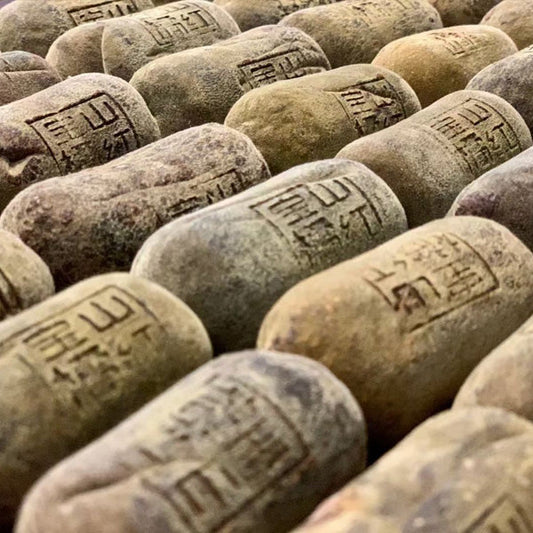
The Secret of the Mini Pomelo – Citrus grandis ...
The Mini Pomelo (Citrus grandis Tomentosa) is a complete natural remedy that acts on breathing, digestion, and overall vitality.It combines the wisdom of traditional medicine with the confirmation of modern...
The Secret of the Mini Pomelo – Citrus grandis ...
The Mini Pomelo (Citrus grandis Tomentosa) is a complete natural remedy that acts on breathing, digestion, and overall vitality.It combines the wisdom of traditional medicine with the confirmation of modern...
-
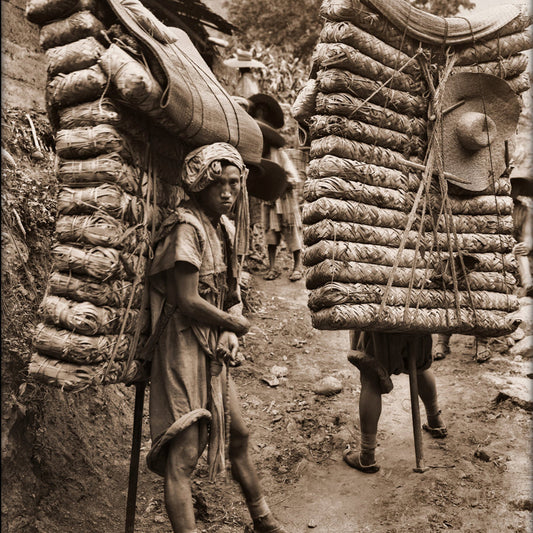
The road to the best tea in China
The road to the best tea in China
The road to the best tea in China
The road to the best tea in China
-
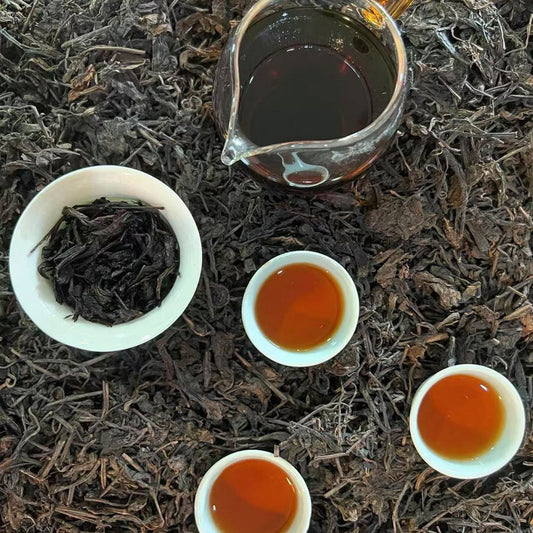
The quest for the perfect tea
There are moments that mark a life. For me, it was the day I tasted my very first aged Pu'erh tea . At the first infusion, a unique aroma rose from...
The quest for the perfect tea
There are moments that mark a life. For me, it was the day I tasted my very first aged Pu'erh tea . At the first infusion, a unique aroma rose from...













